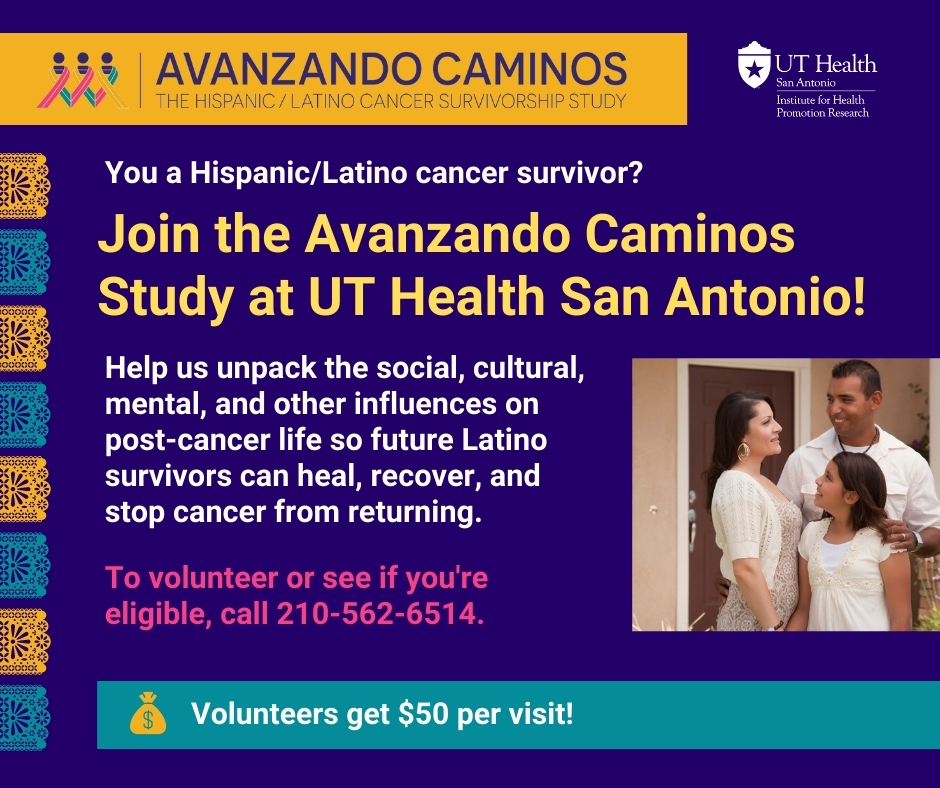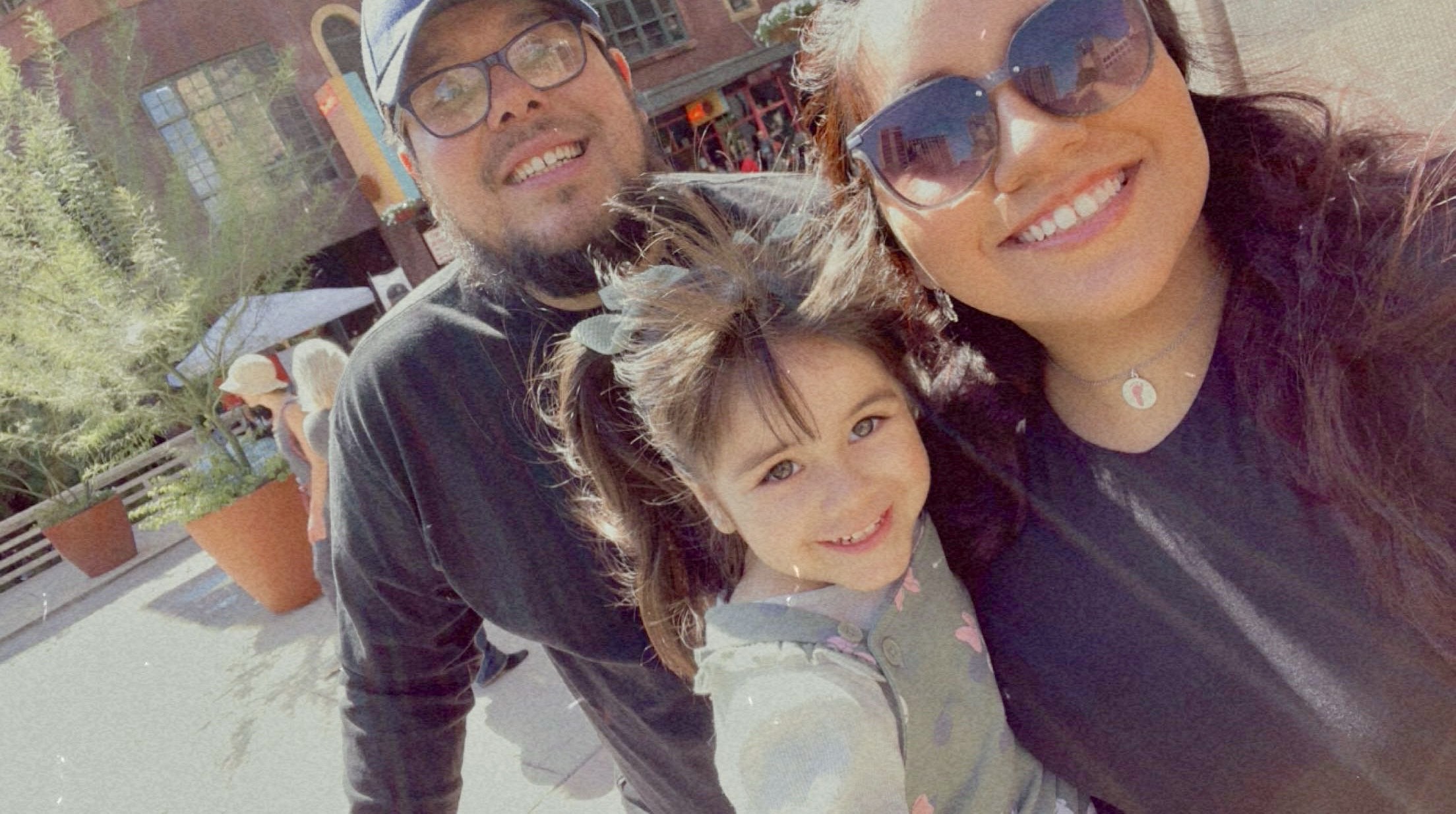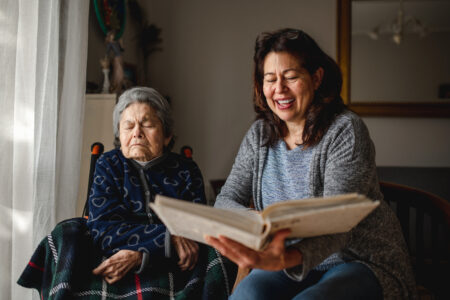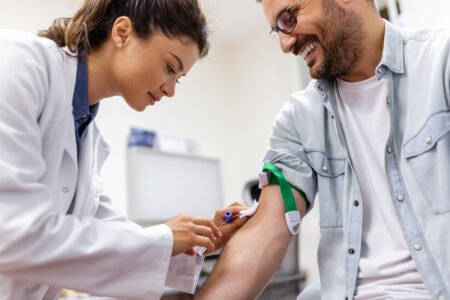Share On Social!
Are you a Latino cancer survivor?
Volunteer for the Avanzando Caminos study at UT Health San Antonio!
Avanzando Caminos aims to enroll 1,500 Latino cancer survivors in South Texas and 1,500 more in Miami to help unpack the social, cultural, behavioral, mental, biological, and medical influences on post-cancer life.
The study is funded by the National Cancer Institute. The South Texas site is led by Dr. Amelie Ramirez of UT Health San Antonio and Mays Cancer Center.
“With the help of Latino cancer survivors, we can help future Latino cancer survivors heal, recover, and reduce the chance for cancer to come back,” said Ramirez, who also leads the Salud America! program at the Institute for Health Promotion Research at UT Health San Antonio.
To volunteer for the study or ask questions, contact the research team of Dr. Amelie Ramirez at the Institute for Health Promotion Research at UT Health San Antonio, at 210-562-6514 or caminos@uthscsa.edu. Volunteers are eligible for $50 per visit!
Why Volunteer for Avanzando Caminos?
Research programs, like Avanzando Caminos, can help researchers learn how to improve treatment for current cancer patients, or better understand cancer to help future cancer survivors.
Research with Latino cancer survivors is especially important.
This population faces a staggering 142% projected rise in cancer cases by 2030.
Latinos also suffer many unique burdens after a cancer diagnosis, as they are more likely to present with advanced disease. They are also more likely to report greater symptom burden and poorer health-related quality of life.
This is where Avanzando Caminos wants to help.
In the program, Latino cancer survivors are asked to share their cancer journey.
“This is a great opportunity to examine what impacts the quality of life and health outcomes of Latino cancer survivors, who are diverse in regard to country of origin and geographic location in the U.S.,” Ramirez said. “Then we can create new ways to address social, cultural, behavioral, psychosocial and biological factors and improve cancer outcomes for Latinos.”
To volunteer for the study or ask questions, contact the research team of Dr. Amelie Ramirez at the Institute for Health Promotion Research at UT Health San Antonio, at 210-562-6514 or caminos@uthscsa.edu. Volunteers are eligible for $50 per visit!
Who Can Volunteer for Avanzando Caminos?
The Avanzando Caminos study is looking for Latino cancer survivors who are:
- Age 18+
- Able to read in English or Spanish
 Willing to attend study visits
Willing to attend study visits- Completed primary treatment for breast, colon, kidney, liver, lung, prostate, stomach or uterine cervix carcinoma in past 10 years
- No severe cognitive impairment or inpatient psychiatric treatment in past 6 months
To volunteer for the study or ask questions, contact the research team of Dr. Amelie Ramirez at the Institute for Health Promotion Research at UT Health San Antonio, at 210-562-6514 or caminos@uthscsa.edu. Volunteers are eligible for $50 per visit!
What Can Volunteers Expect in Avanzando Caminos?
Avanzando Caminos researchers will study how different issues─discrimination, depression, chronic stress, diet, biological markers, genetics and many more─impact Latino survivors’ symptom burdens, health-related quality of life, and disease activity.
These are the expectations for a volunteer:
- Baseline visit: Assessment interview, blood draw
- 6-month visit: Assessment Interview
- 12-month visit: Assessment interview, blood draw
- Year 2 Visit: Assessment interview
- Year 3 Visit: Assessment interview, blood draw
- Year 4 Visit: Assessment interview
- Year 5 Visit: Assessment interview, blood draw
“We want to know your story, your cancer journey. Stories can make all the difference,” Ramirez said.
To volunteer for the study or ask questions, contact the research team of Dr. Amelie Ramirez at the Institute for Health Promotion Research at UT Health San Antonio, at 210-562-6514 or caminos@uthscsa.edu. Volunteers are eligible for $50 per visit!
How Important Are Latino Volunteers?
Avanzando Caminos is a great opportunity for Latinos who want to share their story to help others.
Just ask Amber Lopez.
Lopez, a San Antonio resident who began experiencing symptoms around age 14, was eventually diagnosed with cervical cancer a few years later at 18.

“When you hear that word cancer, you’re kind of like, ‘Oh, my God. OK. So, does that mean like, I’m going to pass away? How does this work?’” Lopez said.
Since her diagnosis, Lopez has overcome many challenges in her cancer journey.
Now she’s sharing her story through the Avanzando Caminos study at UT Health San Antonio to give hope to other Latino cancer survivors.
“I want to get my story out there and just kind of be an advocate for someone that could possibly be as young as I was when everything happened, or even younger, you know, giving that insight. Because I mean, I didn’t have that,” Lopez said. “I couldn’t feel more blessed.”
We need Latino volunteers for cancer registries, research programs, and clinical trials because it helps researchers create treatments and solutions tailored for this population.
Ramirez is creating new ways to encourage Latinos to volunteer for cancer and Alzheimer’s clinical trials. This work is supported by a grant from Genentech, a member of the Roche Group.
“Latinos in research programs and clinical trials are not only helping themselves, but they are also building a future with better treatments that can help their families and communities in the future,” Ramirez said.
To volunteer for the study or ask questions, contact the research team of Dr. Amelie Ramirez at the Institute for Health Promotion Research at UT Health San Antonio, at 210-562-6514 or caminos@uthscsa.edu. Volunteers are eligible for $50 per visit!
By The Numbers
142
Percent
Expected rise in Latino cancer cases in coming years



